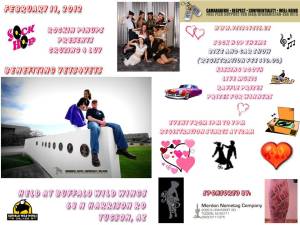Like an untold number of veterans returning from the Iraq and Afghanistan war zones, Mike Ergo found himself wracked by post-traumatic stress disorder. And while he says he never experienced the dark, desperate impulses that apparently overtook Gilroy’s Abel Gutierrez this week, he got close.
Police say Gutierrez, like Ergo an Iraq War veteran who has been treated for PTSD, shot and killed his 11-year-old sister before committing suicide. Authorities believe he also may have killed his mother, who has been missing since Tuesday.
“I’ve felt myself contemplating suicide before,” said Ergo, a Walnut Creek resident who oversees the Bay Area chapter of the support group Vets 4 Vets. “When I hear about events like what happened in Gilroy, it reinforces my belief that we need to do more for vets who return in addressing PTSD.”
PTSD, known in past wars as shell shock and combat fatigue, manifests itself in an array of symptoms that can include anxiety, depression, anger, confusion, irritability, social isolation, alcohol and substance abuse, flashbacks and nightmares.
Dr. Josef Ruzek of the Palo Alto VA Health Care System said there are three main types of symptoms.
“The first is intrusive thoughts,” he said. “A person is troubled by painful memories of what happened. Sometimes they show up in dreams. They also have a lot of physical tension and what we call hyperarousal — difficulty sleeping, concentrating. The final one isavoidance symptoms. They become more limited in emotional reactions, feel detached and disconnected from other people.”
Ruzek and Ergo, who was treated by VA doctors, say the VA provides the best treatment for those suffering from PTSD.
“I have experienced going through treatment a number of different ways,” Ergo said. “The VA is using treatment called prolonged exposure. It’s very intensive, recounting your biggest traumatic incidents over and over. If you can stay in that situation until the anxiety goes down a little bit, it retrains your body.”
PTSD also is a common side effect of traumatic brain injury, which has become the signature wound of the conflicts in Iraq and Afghanistan because of the widespread use of improvised explosive devices against American military personnel.
Mental health experts say incidents such as the one in Gilroy underscore how many veterans are returning home with unseen psychological wounds and haunting memories of the war. Shad Meshad, president of the National Veterans Foundation, believes PTSD is nothing less than an epidemic.
“I predicted a few years ago that there would be a tsunami of these kinds of cases,” he said. “It’s a repeat of Vietnam, but worse because of the multiple tours and the traumatic brain injuries. It’s a new day, and it’s just very sad.”
Rich Blake, a clinician at the Baltimore VA and a Marine Corps veteran, agrees that a lack of funding for diagnosis and treatment of PTSD “is going to lead to all sorts of problems down the road.” But he is loathe to draw a line between the condition and acts of violence.
“There are 2.3 million Afghanistan and Iraqi veterans,” he said. “Most of them do not have PTSD. And most who do don’t do things like this. It’s wrong to consider these terrible incidents an epidemic.”
“It’s important to point out that many people experience post-traumatic problems,” Ruzek said. “Almost none of them behave like Gutierrez.”
In an attempt to quantify the magnitude of the problem, the Rand Corp. estimated in 2008 that one in five veterans who served in Iraq and Afghanistan — nearly 300,000 in all — had reported symptoms of PTSD or major depression. The Congressional Budget Office said in a February report that one in four recent combat veterans who had been treated at a VA hospital from 2004 to 2009 had a diagnosis of PTSD.
Anecdotal evidence tends to speak louder than data. There is enough of the former to paint a troublesome picture of affected veterans, both at home and abroad, unable to cope with emotions they have experienced in combat.
U.S. Army Staff Sgt. Robert Bales, suspected of killing 16 Afghanistan villagers this week, was suffering from stress related to his fourth combat tour, an anonymous official told The New York Times. The staff sergeant’s lawyer said Bales saw a comrade’s leg blown off the day before the rampage.
A recent New York Times study found 121 cases of recent U.S. war veterans being charged with homicides. Six of those came during a cluster of violent crimes committed in and around Fort Collins, Colo., from August 2005 to August 2008 by returning members of a brigade known as the Lethal Warriors.
Gutierrez’s family had been concerned he had been suffering from PTSD upon his return from Iraq and had even called police in late February to help because of his erratic behavior. When Gilroy police met with Gutierrez on Feb. 29, officers decided not to take him into psychiatric custody but referred him for help at the VA.
The problem of disturbed veterans is serious enough to have caught the attention of the U.S. Justice Department. It is funding a pilot program where police officers at 15 sites around the country, likely near military bases, will be taught this year skills to verbally diminish possible violent situations involving veterans.
“Police have always worked with people who have various mental disorders,” said Dennis Cusick, executive director of the Upper Midwest Community Policing Institute in Minnesota. “Veterans pose a different concern because they are considered to be heroes. So we have to protect public safety and at the same time be cognizant of the sacrifices these people have made.”
“It’s hard to say how this is going to play out,” Ergo said. “Emotions compartmentalized during combat will eventually be experienced. It’s just a matter of when.”
Local veterans or active-duty service members can find help for mental health and PTSD symptoms at these agencies.
- Menlo Park VA Mental Health Clinic. Call 650- 617-2772 to schedule an initial assessment.
- Northern California VA. Call 800-382-8387 to schedule an initial assessment.
- Information about the National Center for PTSD is available at www.ptsd.va.gov.



